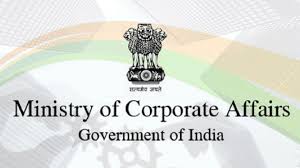Which of the Following Can Be Considered as a Trademark? A Comprehensive Guide for Indian Businesses

If you’ve ever wondered "which of the following can be considered as a trademark?", you’re not alone. Many entrepreneurs and business owners struggle to understand what qualifies as a trademark and how it can protect their brand. Trademarks play a pivotal role in distinguishing your goods or services from others in the market, but not everything can be registered as one. The goal of this guide is to help you identify what can be considered a trademark and how to ensure that your mark qualifies for protection under Indian law. A trademark is a unique symbol, word, name, logo, or other distinctive feature that sets apart your products or services from others in the market. Trademarks are a form of intellectual property that helps protect your business identity and prevents others from using similar marks that might cause confusion. Under the Trade Marks Act, 1999, the definition of a trademark includes a combination of letters, numbers, words, logos, or even sounds and smells that can distinguish your business from others. To qualify as a trademark, the mark must be unique, distinctive, and non-descriptive. The primary purpose of registering a trademark is to create brand recognition and prevent others from copying your brand. Now, let’s take a closer look at which of the following can be considered as a trademark and explore the different types of marks you can register. In India, there are various types of trademarks recognized under the Trade Marks Act, 1999. These include: Word Marks: These are words, letters, or numbers that can distinguish a brand. For example, "Apple" or "Tata". Device Marks: This category includes logos, images, or graphical representations that distinguish a brand. For instance, the Nike "swoosh" logo. Sound Marks: A sound can be trademarked if it is unique and associated with a specific product. The famous Nokia ringtone is a great example. Color Marks: In some cases, a color can be trademarked if it is distinctively linked to a brand, like the magenta color associated with T-Mobile. Shape Marks: Some brands trademark the shape of their product. For example, the distinctive shape of the Coca-Cola bottle. Scent Marks: A rare form of trademark, scent marks refer to a specific fragrance associated with a product, such as the scent of Play-Doh. Service Marks: These are used to distinguish services rather than products. For example, "McDonald’s" used for fast-food services. Collective Marks and Certification Marks: These marks are used by a group or organization to indicate the source of goods or services, such as ISO certifications. With these different types of trademarks in mind, let’s now analyze some examples to determine which of the following can be considered as a trademark. Let’s examine a few scenarios to help you better understand which of the following can be considered as a trademark: The name “RASOI”, which means “kitchen” in Hindi, is not a trademarkable term in this context. It is descriptive and relates directly to the product (hydrogenated oil). Descriptive terms that tell customers what the product is or its ingredients cannot be trademarked. The name “JHOOMRITALAIA” is unique and non-descriptive, making it a strong candidate for trademark registration. This name does not directly describe the product (pens) and could become distinctive with proper branding. If used consistently in connection with a specific brand, it can be registered as a trademark. The term "BANK" is generic and directly describes the services offered (banking). Such generic words cannot be registered as trademarks because they do not distinguish the source of services. A trademark must be unique and capable of identifying a specific business. The square shape for tyres might be eligible for trademark registration if it is distinctively used by a brand and associated with the quality of the product. In cases where the shape is unusual or unique, it can qualify as a trademark, provided it is not a shape that is commonly used in the industry. Any mark that contains obscene, offensive, or immoral content cannot be registered under Indian trademark law. The Trade Marks Act, 1999 prohibits marks that violate public morality or public order. Hence, a mark containing obscene matter will not be considered for registration. Not all marks are eligible for registration. Here’s a list of what cannot be registered as a trademark: Generic Terms: Words that are commonly used to describe products or services cannot be trademarked. Descriptive Terms: Terms that simply describe the product or service (e.g., "Fresh" for juice) are not eligible for trademark registration. Deceptive Marks: Marks that could mislead the public into thinking a product comes from a different source or has certain qualities it doesn’t possess are not eligible. Obscene or Offensive Marks: Any mark containing offensive or immoral content cannot be registered. Religious Symbols or National Emblems: Marks that include religious symbols or national flags/emblems are prohibited. To qualify for registration, your trademark must meet certain criteria. These include: Distinctiveness: Your mark must be able to distinguish your goods or services from those of other businesses. Non-descriptive: The mark must not describe the product directly. No Likelihood of Confusion: The mark should not be too similar to an already registered trademark. Compliance with Law: The trademark must comply with Sections 9 and 11 of the Trade Marks Act, which cover absolute and relative grounds for refusal. Uniqueness: The mark must be unique, original, and inventive. Amul: The word mark for the well-known dairy brand. LIC Logo: The logo representing the Life Insurance Corporation of India. Zomato Sound: The unique sound trademark associated with Zomato. Google: A word mark that has become synonymous with internet search. Coca-Cola: The classic device mark for Coca-Cola, covering both the logo and the product name. While India and the U.S. have similar trademark laws, there may be differences in the way trademarks are registered and protected. Understanding the eligibility criteria in both countries can help businesses expand globally while safeguarding their intellectual property. Here are some common mistakes businesses make during trademark registration: Using Descriptive Terms: Avoid using terms that merely describe your product or service. Imitating Famous Brands: Do not copy logos or names of well-known brands, as it may cause confusion and lead to legal disputes. Not Conducting a Trademark Search: Before filing for a trademark, always conduct a comprehensive search to ensure no similar marks are already registered. Not Registering Both Logo and Wordmark: If your business uses both a logo and a wordmark, ensure both are registered for comprehensive protection. In conclusion, understanding which of the following can be considered as a trademark is crucial for any business looking to protect its brand identity. A trademark is an essential asset that can provide long-term value and legal protection for your brand. By ensuring your trademark is unique, non-descriptive, and legally compliant, you can secure your business’s future and avoid costly mistakes. Ready to register a trademark that truly protects your brand? Protect your brand. Grow your business. Yes, if the color or scent is unique enough to be associated with your brand, you can register it as a trademark. If a similar name is already in use, you may not be able to register your trademark. Conducting a trademark search before applying is essential to avoid conflicts. Yes, slogans can be trademarked if they are distinctive and not descriptive of the product or service. It is highly recommended to register both your logo and your wordmark for complete protection. Yes, if the shape is unique and associated with your brand, it can be registered as a trademark. Yes, if the sound is unique and has become recognizable as a brand identifier, like the Nokia ringtone. A trademark is valid for 10 years in India and can be renewed indefinitely for successive periods of 10 years. Yes, you can register your trademark in multiple countries. You may need to file for registration in each country or through international agreements like the Madrid Protocol.
Whether you're a startup or an established company, knowing which of the following can be considered as a trademark is essential to building a strong brand identity and safeguarding it from infringement. Let's dive into the different types of trademarks and explore what makes a mark eligible for registration.What is a Trademark?
Types of Recognized Trademarks in India
Which of the Following Can Be Considered as a Trademark?
A. RASOI for Hydrogenated Oil
B. JHOOMRITALAIA for Pens
C. BANK for Banking Services
D. Square Shape for Tyres
E. Obscene Matter
What Cannot Be Registered as a Trademark?
Factors That Make a Trademark Registrable
Trademark Examples: India vs. USA
Indian Trademark Examples
U.S. Trademark Examples
Common Mistakes to Avoid
Conclusion
Let MyCompanywala Help You
At MyCompanywala, we’ve helped over 10,000 startups, SMEs, and individuals secure their trademarks with ease.FAQs
Q1: Can I trademark a color or smell?
Q2: What if someone already uses a similar name?
Q3: Can I trademark a slogan?
Q4: Should I register both my logo and name?
Q5: Can I trademark a shape?
Q6: Can I trademark a sound?
Q7: How long does a trademark last in India?
Q8: Can I register a trademark in more than one country?

























.jpg)
.jpg)



.jpg)
.jpg)
.jpg)
.jpg)










